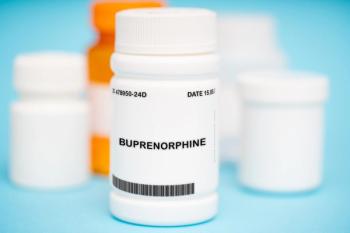
Emergency contraceptive’s curious path to OTC
In June 2013, the Department of Justice under the Obama administration announced an end to its lawsuits regarding age restrictions on “Plan B One-Step” (levonorgestrel), the morning-after pill. The DOJ decided not to appeal the ruling by Judge Edward Korman of the District Court of Eastern New York.
In June 2013, the Department of Justice (DOJ) under the Obama administration announced an end to its lawsuits regarding age restrictions on “Plan B One-Step” (levonorgestrel), the morning-after pill. The DOJ decided not to appeal the ruling by Judge Edward Korman of the District Court of Eastern New York.
Judge Korman overturned Department of Health and Human Services (DHHS) Secretary Kathleen Sebelius’ decision to keep the age limit of 17 on obtaining Plan B One-Step without a prescription. As a result of these latest developments, this morning-after pill will be made available to females of all ages, over-the-counter (OTC) and without a prescription.
This marks the latest outcome of continuing tension between those advocates arguing for greater availability of Plan B One-Step and opponents arguing for limiting access for underage girls.
The timeline
In light of these most recent developments, the following timeline marks key dates for Drug Topics’ readers that led to Plan B One-Step’s current OTC status for females of all ages:
1999: The U.S. Food and Drug Administration (FDA) approves the emergency contraceptive drug levonorgestrel, known as Plan B, and can be obtained as a prescription-only drug. It is a two-tablet format at this time.
2001: The Center for Reproductive Rights, along with countless other activist groups, file a citizen petition with the FDA in order to make Plan B available OTC.
2003: Teva (the maker of Plan B) files an application with FDA to make the drug available OTC.
2005: The Center for Reproductive Rights files a lawsuit in a New York federal court to force the FDA to respond to their citizen petition.
2006: The Center for Reproductive Rights’ citizen petition is denied. Nevertheless, FDA begins allowing Plan B to be made available without a prescription to women who are at least 18 years old.
2009: U.S. District Judge Edward Korman in Brooklyn rules that FDA acted without good faith in denying the citizen petition, and also orders Plan B to be made available to women 17 and older.
August 2009: The FDA approves a generic version of Plan B, also available OTC for women ages 17 and older.
February 2011: Teva files an FDA application to move Plan B One-Step from a limited OTC status to an unfettered OTC status without age limits.
December 2011: FDA decides that Plan B One-Step and generics of Plan B are safe for females of all ages, and they are able to understand the risks of the emergency contraceptive without prescriber help. Nevertheless, FDA is overruled by DHHS Secretary Sebelius, stating there was inadequate evidence showing safe drug use by underage girls.
February 2012: The Center for Reproductive Rights re-opens its lawsuit against the FDA. Secretary Sebelius is also now a named defendant for overruling FDA’s decision to make the emergency contraceptive available OTC.
April 2013: Judge Korman overturns Sebelius’ decision to have age limits for obtaining the emergency contraceptive without a prescription, stating the DHHS decision “was arbitrary, capricious, and unreasonable,” among other things.
May 2013: The DOJ under the Obama administration announces it is appealing Judge Korman’s order to lift all age limits on buying the emergency contraceptive without a prescription.
June 2013: The 2nd U.S. Circuit Court of Appeals in New York permits girls of all ages to purchase morning-after drugs without a prescription.
June 2013: The DOJ announces an about-face and states that it is abandoning all further efforts to appeal Judge Korman’s decision.
The timeline is not an exhaustive detail of events, but is intended to highlight the key points that led to the availability of Plan B One-Step to all females OTC and without a prescription.
Ned Milenkovich is a member at McDonald Hopkins, LLC and Chairs its Drug & Pharmacy Practice Group. He is also Vice-Chairman of the Illinois State Board of Pharmacy. Ned can be reached at 312-642-1480 or
Newsletter
Pharmacy practice is always changing. Stay ahead of the curve with the Drug Topics newsletter and get the latest drug information, industry trends, and patient care tips.























